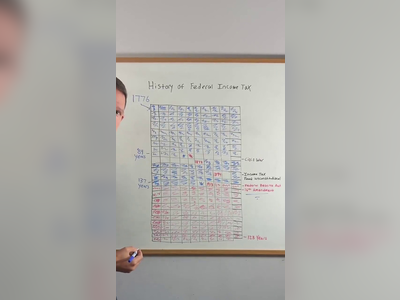
German Unions Withdraw from Musk’s Platform X Over Extremist Concerns
Key organizations cite democracy and misinformation issues linked to the AfD interaction, prompting a strategic shift to alternative platforms.
In a significant development, two leading German unions have decided to withdraw from Elon Musk's social media platform X, formerly known as Twitter.
The Service Employees' Union Ver.di and the Education and Science Workers' Union (GEW) announced their departure following concerns about the platform's role in disseminating extremist views.
This decision stems from a controversial interaction between Elon Musk and Alice Weidel, the chancellor candidate for Germany's far-right party, Alternative for Germany (AfD).
The unions issued a joint statement denouncing the platform for promoting narratives that they perceive as antagonistic to democracy and misinformation.
They accused X of serving as a venue for far-right extremist discourse, specifically citing the conversation between Musk and Weidel as a catalyst for their decision.
This interaction has led the unions to anticipate a spread of anti-labor and anti-union sentiments, alongside right-wing extremist narratives.
Ver.di and GEW have expressed their intention to transition to alternative digital platforms.
They plan to utilize emerging services such as Bluesky and Mastodon, in addition to established platforms like Facebook, Instagram, and TikTok.
This move signifies a strategic shift as these unions aim to dissociate from platforms they believe undermine democratic values or propagate misinformation.
In a parallel development, Germany's Federal Court of Justice (Bundesgerichtshof) has announced its decision to stop disseminating press releases via X.
The court has decided to switch to the microblogging service Mastodon for future communications, although no official reason was provided for this change.
The controversy centers around a discussion in which Musk reiterated his endorsement of the AfD, portraying it as a solitary force capable of 'rescuing Germany.' The conversation also involved mocking German bureaucracy, with specific references made to the bureaucratic obstacles faced by the Tesla Gigafactory in Grünheide.
This turn of events underscores the broader discourse on the use of digital platforms in political communication and the responsibility of these platforms in moderating content perceived as extremist or misleading.
As influential institutions like unions and courts reassess their media strategies, their withdrawal from X may have broader implications for how organizations engage with digital platforms on a global scale.
The Service Employees' Union Ver.di and the Education and Science Workers' Union (GEW) announced their departure following concerns about the platform's role in disseminating extremist views.
This decision stems from a controversial interaction between Elon Musk and Alice Weidel, the chancellor candidate for Germany's far-right party, Alternative for Germany (AfD).
The unions issued a joint statement denouncing the platform for promoting narratives that they perceive as antagonistic to democracy and misinformation.
They accused X of serving as a venue for far-right extremist discourse, specifically citing the conversation between Musk and Weidel as a catalyst for their decision.
This interaction has led the unions to anticipate a spread of anti-labor and anti-union sentiments, alongside right-wing extremist narratives.
Ver.di and GEW have expressed their intention to transition to alternative digital platforms.
They plan to utilize emerging services such as Bluesky and Mastodon, in addition to established platforms like Facebook, Instagram, and TikTok.
This move signifies a strategic shift as these unions aim to dissociate from platforms they believe undermine democratic values or propagate misinformation.
In a parallel development, Germany's Federal Court of Justice (Bundesgerichtshof) has announced its decision to stop disseminating press releases via X.
The court has decided to switch to the microblogging service Mastodon for future communications, although no official reason was provided for this change.
The controversy centers around a discussion in which Musk reiterated his endorsement of the AfD, portraying it as a solitary force capable of 'rescuing Germany.' The conversation also involved mocking German bureaucracy, with specific references made to the bureaucratic obstacles faced by the Tesla Gigafactory in Grünheide.
This turn of events underscores the broader discourse on the use of digital platforms in political communication and the responsibility of these platforms in moderating content perceived as extremist or misleading.
As influential institutions like unions and courts reassess their media strategies, their withdrawal from X may have broader implications for how organizations engage with digital platforms on a global scale.
AI Disclaimer: An advanced artificial intelligence (AI) system generated the content of this page on its own. This innovative technology conducts extensive research from a variety of reliable sources, performs rigorous fact-checking and verification, cleans up and balances biased or manipulated content, and presents a minimal factual summary that is just enough yet essential for you to function as an informed and educated citizen. Please keep in mind, however, that this system is an evolving technology, and as a result, the article may contain accidental inaccuracies or errors. We urge you to help us improve our site by reporting any inaccuracies you find using the "Contact Us" link at the bottom of this page. Your helpful feedback helps us improve our system and deliver more precise content. When you find an article of interest here, please look for the full and extensive coverage of this topic in traditional news sources, as they are written by professional journalists that we try to support, not replace. We appreciate your understanding and assistance.










